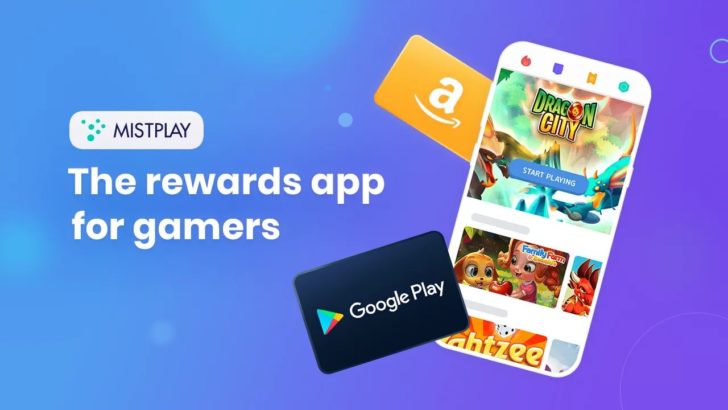Why Play-to-Earn Rewards Are Changing the Way You Play and Make
The appearance of play-to-earn versions signifies a significant change in the pc gaming landscape, inviting gamers to explore not only the amusement value of games but likewise their prospective as income-generating systems. Comprehending these dynamics increases essential questions about the future of gaming and the ramifications for both players and developers alike.
Development of Play-to-Earn Designs
Over the last few years, the video gaming market has experienced a substantial transformation with the appearance of play-to-earn versions, basically altering just how gamers involve with electronic atmospheres. This cutting-edge approach allows gamers to obtain substantial benefits with their in-game tasks, creating a change from typical video gaming standards where satisfaction and competition were the key inspirations.
Play-to-earn designs take advantage of blockchain technology and non-fungible tokens (NFTs) to supply players with ownership of in-game properties, which can be traded or cost real-world currency. Consequently, gamers are incentivized to spend time and initiative into games, cultivating a sense of agency and financial possibility. play to earn rewards. This shift has actually drawn in a diverse gamer base, consisting of those that may have previously watched video gaming as a purely entertainment task
A number of platforms have actually emerged, showcasing effective applications of this version, such as Axie Infinity and Decentraland. These systems have not only generated considerable income yet likewise sparked conversations around the sustainability and principles of such financial systems. As play-to-earn designs remain to progress, they promise to redefine the connection in between players, programmers, and the wider digital economy, paving the way for a brand-new period in video gaming.
Advantages for Gamers
As gamers engage with play-to-earn models, they open an array of advantages that expand beyond simple amusement. Unlike typical pc gaming, where players invest time and money without tangible returns, play-to-earn systems allow gamers to make copyright or in-game possessions that can be transformed to real-world value.
Furthermore, play-to-earn versions advertise community structure amongst gamers. Gamers commonly team up to attain common goals, thus cultivating social links that improve the total experience. This sense of area can bring about participating gameplay, where gamers share techniques and resources, enhancing both individual and team accomplishments.
Furthermore, these designs can democratize accessibility to pc gaming by enabling players from varied financial backgrounds to benefit monetarily. By joining play-to-earn communities, people can get skills and knowledge concerning blockchain innovation, further expanding their profession opportunities in the expanding digital economy. Inevitably, the benefits for gamers expand well beyond gameplay, impacting their social, financial, and educational landscapes favorably.
Challenges in the Community
While the play-to-earn community offers significant opportunities, it is not without its obstacles. Variations in value can prevent possible players who look for stable earnings streams.
One more obstacle is the risk of scams and illegal plans that can torment the ecosystem. Players may experience deceitful systems assuring high rewards however ultimately leading to economic loss. Making sure depend on and safety and security is essential for the lasting practicality of play-to-earn models.
Additionally, the ecological impact of blockchain gaming can not be neglected. The energy usage related to mining and deal handling raises ethical questions about sustainability. Video game programmers must find a balance in between satisfying gamers and lessening environmental impacts.
Lastly, the regulatory landscape is still evolving, posturing possible threats for designers and gamers alike. Uncertain lawful structures can impede advancement and limit the growth of play-to-earn communities. Resolving these obstacles is essential for understanding the complete capacity of this transformative gaming standard.
The Function of Blockchain Modern Technology
Blockchain innovation works as the backbone of the play-to-earn ecological community, resolving much of the difficulties previously laid out. By using decentralized a knockout post ledgers, blockchain ensures openness and safety in purchases. Gamers can confidently earn and trade in-game properties, understanding that ownership is proven and not subject to manipulation.

Tokenization of possessions plays an essential function, approving gamers true possession of their in-game items, which can be acquired, sold, or traded on numerous industries. This motivates a vivid secondary market, where gamers can monetize their abilities and time purchased the video game.
Additionally, blockchain innovation makes it possible for interoperability between different video games and platforms, enabling players to bring their properties across different ecosystems. This versatility not only enhances customer experience however also promotes a more comprehensive pc gaming setting, inevitably reshaping the landscape of gaming and earning.
Future Patterns in Pc Gaming
The pc gaming sector gets on the brink of a transformative advancement, driven by emerging modern technologies and moving player assumptions. As play-to-earn versions gain traction, gamers are progressively seeking immersive experiences that mix amusement with substantial rewards. This change is triggering designers to innovate, concentrating on creating interesting gameplay that cultivates neighborhood and communication.
One noteworthy pattern is the assimilation of virtual fact (VIRTUAL REALITY) and enhanced reality (AR), enhancing the gaming experience by offering much deeper immersion and interactive environments. Furthermore, improvements in expert system are enabling much more innovative non-player visit this site personalities (NPCs) and flexible gameplay, customizing experiences to specific player preferences.

Verdict
In conclusion, the play-to-earn model is substantially changing the pc gaming landscape by allowing players to derive real-world worth from their in-game tasks. This paradigm change imp source not only boosts player engagement and investment however additionally increases challenges that have to be dealt with to make certain sustainability within the community. As blockchain modern technology proceeds to facilitate possession of electronic properties, the future of gaming promises more development and possibilities for gamers throughout diverse backgrounds.